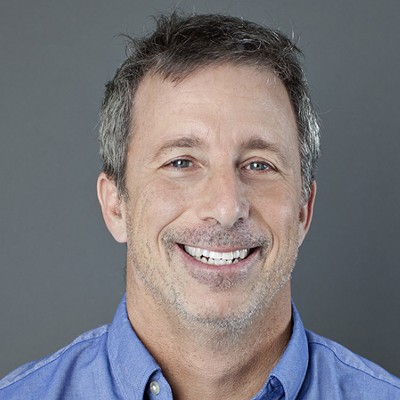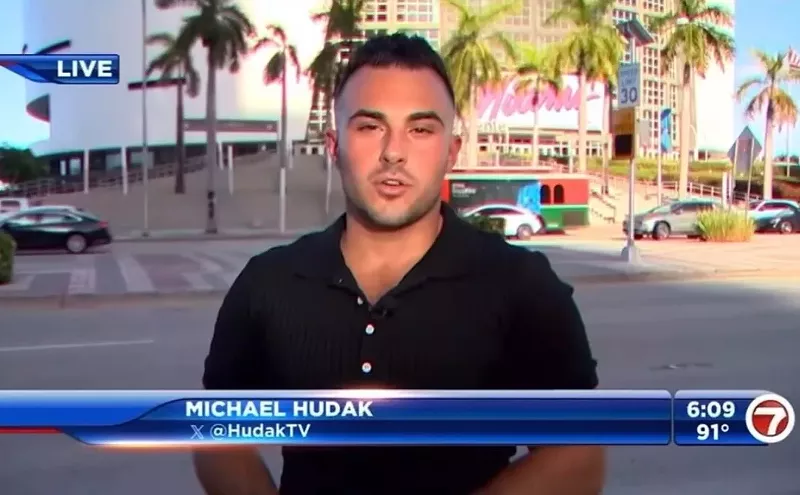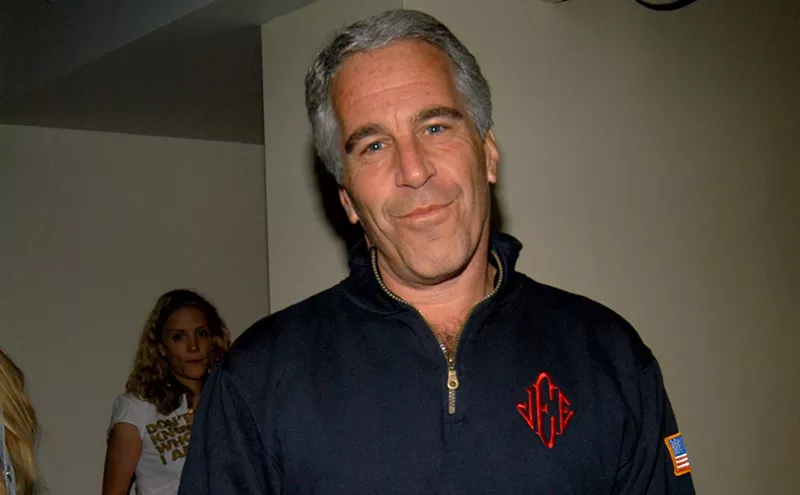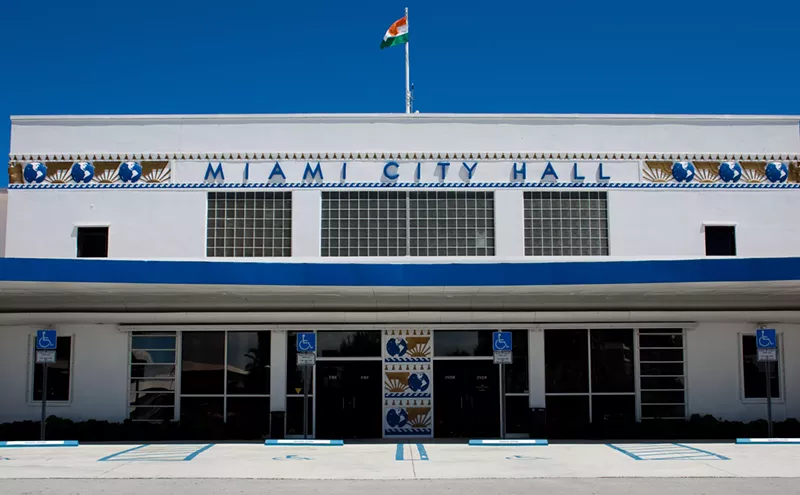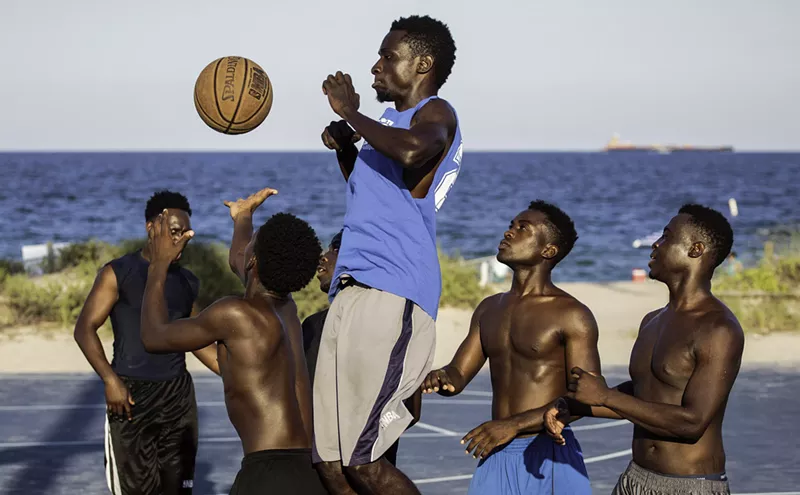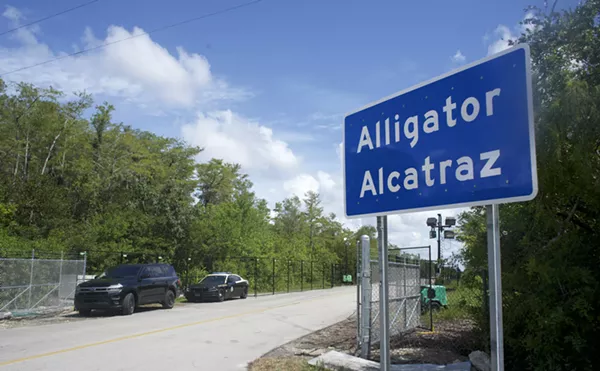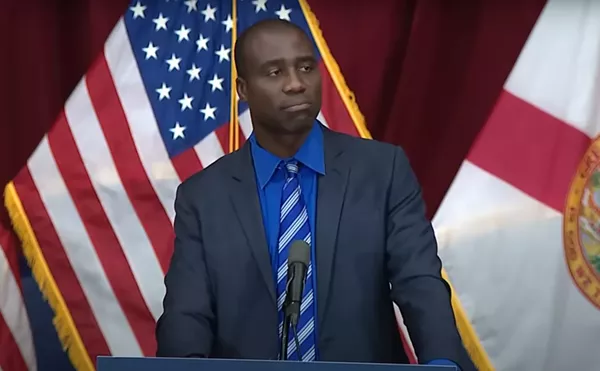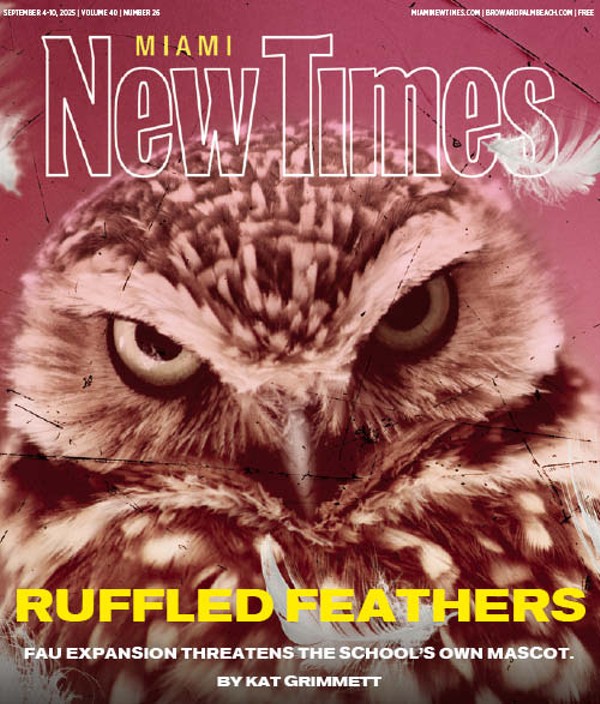Para leer la versión en español, haga clic aquí.
Aijalon Muhammad quietly sobs and shudders while recalling the moment her baby brother's corpse arrived in the cargo hold near Miami International Airport. The pretty 41-year-old with deep brown eyes and a neat square jaw stood beside her dad and two others as a forklift carried a long, light-brown box across the scrubbed concrete. When it halted, two business-suited men tugged the box into a hearse.
Then she spotted the black stenciled letters: Maxwell, Louis.
"We wanted to be there when his body touched back into Miami," she says, emotion contorting her features like waves rippling from a skipped stone, "when he came home."
Maxwell, whom friends and family called Jay, was shot repeatedly with an AK-47 on a muddy road in Afghanistan last October after he saved more than a dozen lives. (For details of his time before Afghanistan, see "Louis Maxwell's Forgotten Murder, Part 1.") Though authorities first announced he had been killed by crazed terrorists, it now appears the 27-year-old trumpeter and martial artist fell victim to a poorly manned and undertrained security force riven with corruption. Since then, Aijalon Muhammad and her family have become pawns in the complex politics of a war that President Barack Obama has pledged to end. And questions raised by the murder lead all the way to the White House.
Maxwell was assigned to Kabul in July 2009 after serving in the U.S. Navy and then as a United Nations bodyguard in Lebanon. A month later, American-backed Afghan President Hamid Karzai was to face an election that would threaten both the nation's stability and the international war effort. His challenger was Abdullah Abdullah, an eye doctor-turned-guerrilla-turned-candidate who was running strongly against Karzai's corruption, including alleged family ties to the booming opium trade.
The young American would provide security for 34 election monitors led by Kai Eide, a Norwegian diplomat. Henry Meza, another security guard, recalls picking him up at the Kabul airport. The two immediately established a rapport based on mutual ribbing. "I said, 'I don't know... the name Maxwell. I just kind of figured you were bigger; you're kind of small, dude!'" Meza remembers saying. "I started laughing."
Over the next few months, the two became close. "I was making fun of him being in a marching band," he recalls. "In this line of work, you make bonds pretty quick — strong bonds... He was a great guy. He looked after me, and I looked after him."
The men played dominoes and soccer to pass the time. Maxwell slept in a white stucco building in central Kabul where the election monitors were staying. By day, he wore a UN uniform with a nametag around his neck.
When time came for the August 20 vote, the monitors fanned out around the mountainous country. Abdullah's campaign had been picking up steam. He was supported by the Afghan version of the Muslim Brotherhood, a radical group, and favored distributing more power to local leaders. That didn't sit well with the American command.
At first, Karzai was reported to have garnered 54 percent of the vote, enough to win the presidency outright. But claims of vote tampering began pouring into UN headquarters. Karzai ran the voting machinery. Videos and pictures surfaced of the incumbent's supporters stuffing ballot boxes. More than 200 precincts' results were thrown out altogether.
On October 19, a special commission backed by the United Nations ruled that as many as one in every five votes had been faked. If Karzai were to be a credible leader, the commission ruled, there had to be a runoff. "There is no end to the misery," an Abdullah spokesman said at the time.
That set the stage for the October 28 attack on the Bakhtar guesthouse where Louis Maxwell and the monitors were staying. To this day, no one knows exactly what happened. This much is clear, though: Very early that morning, rocket attacks were launched on two other locations in Kabul — the presidential palace and the luxury Serena Hotel, which was popular with foreigners.
Maxwell was awakened around 5:45 a.m. by a call from someone named Ali. The soldier didn't have time to put on his UN uniform, but he threw identification around his neck and grabbed his German assault rifle, an HK G36 that can fire as many as 100 rounds in seconds. He might have snapped on a scope, purchased with his own money as an upgrade; then he sprinted to the roof.
Chaos ensued. Explosions and fires erupted in the building. Some of the attackers, including three suicide bombers, were dressed as Afghan security forces. Maxwell provided cover while some of the UN staffers escaped out a back door. Inside, the attackers threw hand grenades and blew themselves up.
Soon, flames shot up outside the building. At one point, Maxwell fell or jumped from the roof. A woman named Josie cried for help. He pushed his way past the flames and helped her to safety.
Then, at 7:20 a.m., Maxwell radioed Ali, the man who had awakened him: "Ali, Ali I am shot," he said.
The radio operator answered, "Click on the walkie-talkie if you are wounded." There was no response.
When the shooting was over, Maxwell's body turned up lifeless outside the guesthouse. Four other UN employees were also found dead, including fellow guard Laurance Mafful. At least two of those dead were election monitors. Nine people were wounded.
On television, the Afghan people heard a man who said he was a Taliban spokesman claim credit for the attacks. An Afghan soldier was quoted as saying he had killed an Arab terrorist, whom some would later think was Louis Maxwell.
Paul O'Hanlon, a UN security specialist, told London's Daily Mail that Maxwell "engaged numerous attackers inside the guesthouse for a considerable period of time. He conserved his ammunition. He was lucid. If he hadn't done his job, the attackers would have pursued [the monitors] and we'd have had a line of bodies."
On November 5, UN Secretary General Ban Ki-moon also addressed Maxwell's heroism in a speech before the general assembly. He announced that half the UN staff in the country — about 600 people — would be withdrawn because of safety concerns, and he railed against Afghan security forces for taking too long to appear.
Two days later, Maxwell was buried at Vista Memorial Gardens on Red Road. Trumpeters from his old band played a fanfare. Pastor Joy Jackson, a family friend and mentor, gave the eulogy. "Mission Accomplished" was her theme.
Jackson was a positive and mighty pillar of strength that day. But soon it would emerge that Maxwell was likely killed by Karzai's forces. Theories would surface, some with substantial evidence: Soldiers murdered him to steal his gun. Karzai ordered the attack to seek revenge for the corruption claims. Maxwell was shot from afar by poorly trained officers who thought he was a terrorist.
And the United Nations would probe his death but refuse to release the report detailing that probe. The FBI would also become involved. Maxwell's relatives have received many visits and details, but so far they aren't satisfied.
"It's beyond words what this family has been through," Pastor Jackson says. "You try to trust, but you don't know whom to believe. You don't know who's covering up or why."
Next week: Afghan President Hamid Karzai likely had Louis Maxwell killed.


